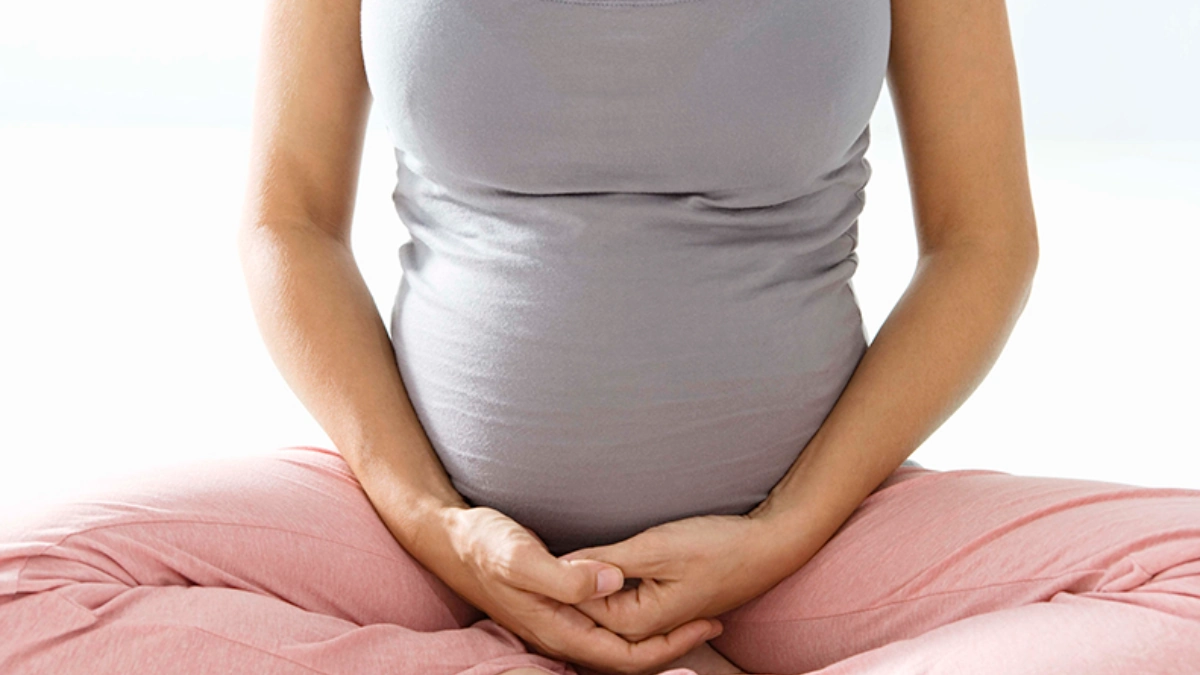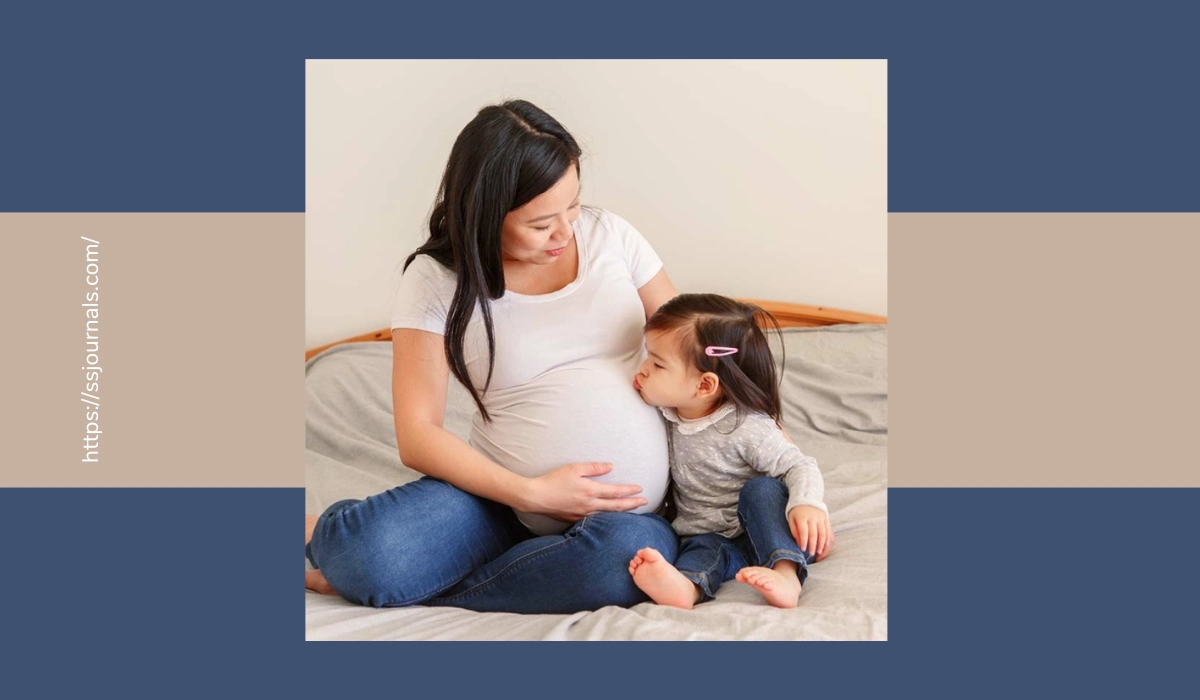Geriatric pregnancy refers to pregnancy in women over the age of 35. It is becoming increasingly common as more women choose to delay childbearing.
Pregnancy later in life carries additional risks and challenges compared to younger women. This article will discuss what geriatric pregnancy is, associated risks, precautions to take, and frequently asked questions.
What Is Geriatric Pregnancy? How It Is Different From Others?
Geriatric pregnancy is defined as pregnancy in a woman over the age of 35. Some sources use age 40 as the cutoff. The reproductive organs and eggs undergo normal aging changes as women get older, so pregnancy is categorized as geriatric at an earlier age than other conditions.

After age 30, the ovaries have a diminished supply of viable eggs and female fertility starts declining progressively.
The remaining eggs may have structural abnormalities leading to higher chances of genetic defects. Older women’s bodies are also less capable of adapting to the physiologic demands of pregnancy.
Some key differences in geriatric pregnancies include:
- Lengthier time to conceive due to reduced fertility
- Increased need for assisted reproductive technology like IVF
- Higher chance of developing gestational diabetes and hypertension
- Higher miscarriage rates
- Increased risk of chromosomal abnormalities like Down’s syndrome
- Greater likelihood of high-risk pregnancies needing more monitoring
- Higher rates of cesarean sections and instrumental deliveries
- Greater chance of premature birth or low birth weight babies
- Higher incidence of multiple births with assisted conception
- Increased postpartum recovery time and complications
So in summary, geriatric pregnancies have additional risks, complications, and challenges compared to younger women due to natural aging processes. Proper prenatal testing and care are vital for positive outcomes.
Is It Safe To Get Pregnant During Old Age? What Are The Challenges To Go Through?
While many geriatric pregnancies result in healthy babies, the additional risks should be carefully considered. Some key challenges older pregnant women may face include:
- Reduced stamina and endurance which can impact delivery
- Increased pregnancy-related discomforts like back pain or swelling
- Higher risk of gestational hypertension, preeclampsia, and gestational diabetes
- Greater likelihood of Cesarean section which poses surgical risks
- Increased risk of miscarriage or chromosomal issues which increases the emotional toll
- Higher odds of developing postpartum depression
- Breastfeeding challenges due to reduced mammary tissue elasticity
- Greater difficulty losing pregnancy weight gain
- Potential for interrupted career development or retirement planning
- Higher financial costs associated with assisted conception or high-risk pregnancy care
- Challenges keeping up with young children after birth due to reduced energy
- Stress on marital relationship with the first child later in life
While none of these are guaranteed, women should carefully weigh such potential challenges against their desire for pregnancy. Good prenatal care, exercise habits, a healthy diet, and social support can optimize outcomes. Genetic counseling is advised. Working with maternal health experts ensures safe geriatric pregnancy.
Risk Factors Of Pregnancy During Old Age
Some key risk factors associated with geriatric pregnancy include:
- Genetic abnormalities – The risk of chromosome issues like Down’s syndrome rises from 1 in 1,250 at age 35 to 1 in 100 by age 40. Egg quality declines.
- – Pregnancy complications – Gestational diabetes, preeclampsia, placental problems, preterm labor, miscarriage and stillbirth are more common.
- Labor and delivery risks – Slowed labor progression, failure to dilate, and increased need for induction or cesarean delivery.
- Multiple births – Higher rates of twins or triplets, especially with IVF. This further increases risks.
- Passing on genetic defects – Higher chance of conceiving babies with genetic disorders.
- – Birth defects – Some congenital disabilities like congenital heart disease are more common later in life.
- Placental abruption – The placenta detaching from the uterine lining leading to heavy bleeding occurs more often.
- Mother’s health issues – Chronic illnesses like hypertension, and diabetes, affect pregnancy. Vaginal deliveries may be avoided.
- Postpartum depression – Hormonal shifts, pre-existing depression, and struggles of new parenthood at an older age increase risk.
- Childbearing repeat – The risks multiply if attempting another child later in life after an initial geriatric pregnancy.
- Social concerns – Returning to infant care later in life can be isolating if peers have adult children.
To minimize risks, good prenatal care is vital. Screenings like cell-free DNA tests, amniocentesis, or chorionic villus sampling can diagnose chromosomal issues early. Maintaining a healthy lifestyle and a strong support system also help counter risks.
Tips & Precautions To Maintain During Geriatric Pregnancy
Here are some tips and precautions that can help maintain a healthy geriatric pregnancy:
- Get preconception counseling – Consult an OB-GYN beforehand to understand and manage risks. Begin prenatal vitamins.
- Adopt healthy habits – Follow an optimal diet and exercise regimen, while limiting alcohol for optimal health before and during pregnancy.
- Monitor for diabetes and hypertension – Get screened for these regularly during pregnancy and control them if present.
- Gain weight gradually – Stick to recommended pregnancy weight gain goals through diet and exercise.
- Stay active – Do low-impact activities like walking, swimming, or yoga under medical guidance for easier labor.
- Manage stress – Use meditation, social support, and other stress management techniques.
- Get genetic testing – Opt for cell-free DNA blood testing, chorionic villus sampling, or amniocentesis to detect chromosomal abnormalities.
- Attend regular prenatal visits – Stick to monthly and then biweekly visits in the third trimester to monitor fetal development and maternal health.
- Develop a birth plan – Discuss delivery preferences like labor positions and pain management beforehand.
- Plan for help – Arrange for household help and baby care support post-delivery given higher postpartum demands.
- Communicate with your partner – Address relationship, intimacy, or parenthood concerns together. Seek counseling if required.
- Join support groups – Connect with those who understand unique geriatric pregnancy challenges for motivation.
Following these tips while working closely with your healthcare provider can help optimize a healthy, low-risk pregnancy later in life. Listen to your body and do not hesitate to seek medical advice frequently.
Conclusion
While pregnancies later in life entail higher risks like genetic abnormalities, complications, and delivery difficulties, careful planning and monitoring can mitigate these risks.
Geriatric pregnancies require closer care and caution but can still result in healthy pregnancies under expert guidance. Women should weigh their desire for motherhood against the potential challenges unique to pregnancy after age 35.
Frequently Asked Questions
Fertility steeply declines after 40. Each cycle has around a 5% chance of conceiving naturally. By age 43-44, natural conception odds are around 1% per cycle without assistance.
Egg freezing before age 35 can improve the chances of conception in the 40s. However, pregnancy risks related to advanced maternal age persist.
Yes, the risk of certain birth defects like Down syndrome is higher. Genetic counseling and testing help detect issues earlier.
Not necessarily, but the chances of needing a Cesarean delivery are higher due to slowed labor and other complications. Vaginal birth may still be possible in many cases.
Stopping smoking and alcohol, maintaining a healthy BMI, regular exercise, stress management, good nutrition, and optimal diabetes control promote healthy outcomes.

